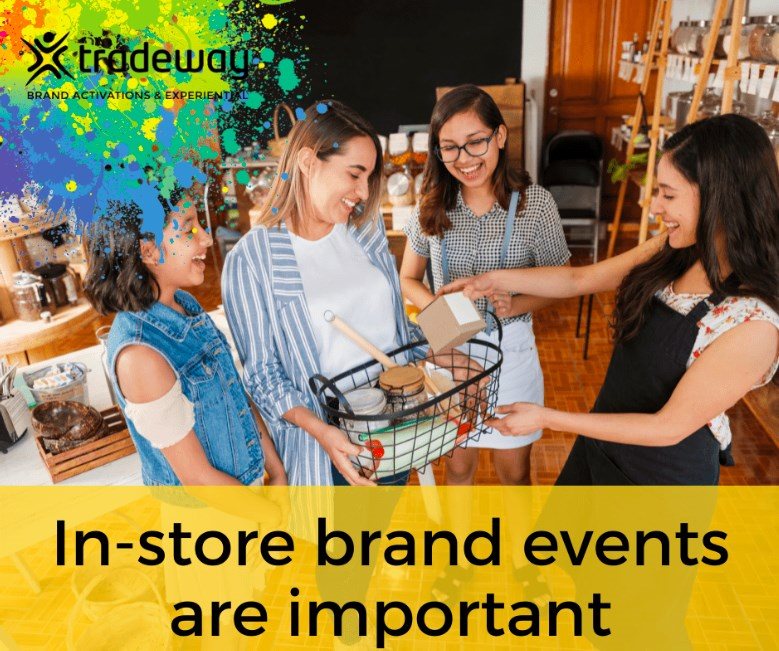Consumers are increasingly discerning and empowered, and the market is more competitive than ever before. You need a finger on the pulse of the industry if you are to keep up and maintain your competitive edge. We’ve identified 7 key global trends impacting FMCG locally:
- Emerging markets account for 70% of the growth in the consumer goods market.
- Post-Covid Consumers remain price sensitive.
- Two-thirds of touch points in today’s buyer journeys are consumer-driven.
- Consumers put health on the shopping list.
- ‘The millennial effect’ - younger generations are experience-oriented, not product driven.
- Omnichannel shopping is the future of retail.
- Bang for your buck - marketing budgets remain constrained, but expectations of return are higher than ever.
1. Emerging markets account for 70% of the growth in the consumer goods market.
Mckinsey estimates that emerging markets will generate new consumer sales of $11tn by 2025. This makes emerging markets like South Africa attractive for global brand owners. As a result, we are likely to see continued brand and product diversification on our shelves.
This means more choice for consumers and more competition for marketers. However, it also presents opportunities to capture consumer attention through brand novelty and innovative product launches.
Big brands unfamiliar with emerging market consumer behaviour need reminding that e-commerce adoption is not what it is in developed markets. According to FNB Merchant Services statistics, e-commerce card purchases are at just 8% of the total card purchases in South Africa today. Fears of parcel theft, online fraud, high mobile data costs and challenges with last-mile delivery mean that, for the vast majority of South Africans, trips to the local supermarket remain a part of everyday life.
Failure to recognise the power of in-store promotions in emerging markets can mean failure to launch.
In-store promotions and physical brand activations remain valuable strategies in your arsenal in emerging markets like South Africa. Click here for some examples.
2. Post-Covid consumers remain price-sensitive
We continue to feel the aftereffects of the pandemic in our pockets. Household budgets remain constrained and we’ve seen consumers continue to base brand choices primarily on price.
Mckinsey reported recently that 32% of shoppers in South Africa substitute branded products with cheaper alternatives – either more affordable brands or private (no-name) labels – representing a 10% increase since the start of the pandemic.
The use of cleverly positioned in-store promotions are a great way to capture the attention of price-sensitive consumers. If they try a superior product on promotion, they will be more inclined to switch once financial constraints ease.
3. Two-thirds of touch points in today’s buyer journeys are consumer driven.
The way consumers make decisions to purchase has changed. It’s no longer a linear funnel led by sales and marketing in the driver’s seat. Instead, today’s consumer buyer journeys are ‘self-driven’.
Consumers research products, consult with peers and check brands out on social media when considering what to buy. In fact, research by Mckinsey found that two-thirds of touch points on today’s buyer journeys involve consumer-driven marketing activities, including online reviews, word-of-mouth recommendations and in-store interactions.
In this brave new world, FMCG marketers must facilitate the creation of consumer-driven marketing touch points in their brand and trade marketing repertoire. This means creating opportunities for consumers to engage with brands on their own terms.
In-store promotions are a great way to achieve this right where consumers act and transact. Done right, these activities can prove extremely effective. But, if you want scalability, brand activations that give consumers awesome and shareable experiences have the greatest potential for exponential reach, virality and influence.
4. Consumers put health on the shopping list.
As consumers, we are all increasingly conscious of the impact of what we consume on our health. In a recent European study, Deloitte found that 64% of respondents are more interested in learning more about the influence of food on their health. And changing buying behaviour is following suit – with increased fruit and vegetable sales, and decreased meat and alcohol sales.
For a long time, health-conscious consumers were a niche segment. But healthy eating has become a mainstream value. So much so, that FMCG companies are increasingly committing to ambitious environmental, social, and governance (ESG) goals, partly driven by changing consumer demand.
Locally, however, economic pressure on many segments of society means that health-conscious consumer choices remain aspirational. So, while consumers in South Africa care about healthy options, they don’t want to (and often simply can’t afford to) increase their spend on them. Mckinsey reports for instance that 46% of South African consumers are willing to pay 'a bit more' for healthy options, but only 18% will pay 'a lot more'.
For marketers in FMCG, there is an opportunity to extend brand equity by addressing health concerns of consumers and helping brands reposition themselves with the consumer’s health in mind. Well-informed in-store brand ambassadors educating shoppers on the ground are a great way to change brand perceptions in this regard.
5. ‘The millennial effect’ – younger generations are experience oriented, not product driven.
Younger shoppers demand authenticity from the brands they choose to support. They don’t want to be sold to, they want opportunities for connection and association with brands whose personalities they resonate with.
That means showcasing your personability and imbuing your brand with a living, breathing human face. Experiential marketing events are a great, tangible way to showcase your brand's personality and create a platform for connection and sharing. It’s about creating a forum for conversation directly with your market.
But don’t expect that old trade marketing tactics will work with millenials and Gen Zs. These digital natives are used to being the subject of fierce competition for their attention. If you want that attention, you need to create innovative, compelling experiences, rather than products.
This requires creativity and innovation from FMCG brands and the activation agencies that support them. Working to foster a genuine understanding of what these consumers want is key to getting this right.
6. Omnichannel shopping is the future of retail
The pandemic and associated physical lockdowns fast tracked and, at times, necessitated digital adoption, as evidenced by the steady growth in e-commerce mentioned earlier.
And digital is sometimes touted as the ultimate silver bullet and panacea that will solve all of our trade marketing challenges – ensuring data-led, agile, affordable, targeted market engagement.
But digital is increasingly crowded and incredibly easy to ignore. Sometimes, seeing, smelling and feeling is believing. We have seen this time and time again. Take a recent mass-market campaign Tradeway executed for a leading cosmetic brand. By deploying real people to stores, we drove sales and converted shoppers from competitor brands through promotional offers and the chance to really experience the brand. The result – over 83,000 sales and more than 100,000 engagements. That's a direct conversion rate of more than 80%. Show me a digital campaign able to deliver those results.
The trick is to adopt a hybrid, omnichannel approach to your FMCG marketing efforts that aligns with changing buyer behaviour. You should meet your customers where they are at – whether that’s online or instore or somewhere in between.
And activities should be complementary and supplementary. For instance, even though there has been a steady shift in preference for online shopping, your activation strategies can increase the traffic volumes online. An ICSC study found that the increased brand awareness that results from opening a new store location can increase traffic to a retailer's website by 37%.
The gold standard is physical brand experiences that translate into viral digital content that consumers can’t help but share. Getting this right turns consumers into customers, and customers into brand ambassadors.
To achieve this, you need a turnkey partner in innovation that can support you through a brand activation journey from end-to-end, including strategy, creative, logistics, sourcing, staffing, execution, and reporting.
7. Bang for your buck – FMCG marketing budgets remain constrained but expectations of return are higher than ever.
In a recent report, Garter stated that marketing budgets are slowly returning to pre-pandemic levels for most industries, with average marketing spend increasing from 6.4% to 9.5% of company revenue.
But for CMOs in the consumer goods space, budgets decreased slightly from 8.3% in 2021 to 8.0% in 2022. Inflationary pressures, cost-of-living increases and lower consumer confidence are hitting FMCG hard.
As competition hots up for discerning, constrained consumers, CMOs in FMCG are under immense pressure to demonstrate measurable results (a.k.a. return) from their marketing budgets. This makes selecting strategies, activities and partners critical. And there is no shortage of options or promises of performance in the market. The question is, how do you separate out the snake oil salesmen?
Having specialised in marketing activations for FMCG for almost two decades, we recommend thoroughly vetting suppliers. Evaluate core competencies, track record and current capabilities. Do they understand your industry? Do they have the resources and infrastructure to deliver on their promises, and can they demonstrate past success? We also recommend selecting specialists according to the type of activity – a hybrid approach to budget allocation.
This is inline with global marketing budget trends – and evolving buyer journeys. Gartner notes that budgets are shifting from digital-first to hybrid multichannel strategies and a more equitable split between on- and offline activities. Spend on online channels in 2022 was at 56% of budget, and offline channels accounted for the balance (44%).
Key Takeaways
As global brands scramble for emerging markets, and increasingly discerning consumers exercise their power to choose, competition in FMCG is only going to increase. To address these shifts and stand out, focus on building a brand that your target customers identify with and can trust:
- Failure to recognise the power of in-store promotions in emerging markets can mean failure to launch.
- Capture the attention of price-sensitive consumers with cleverly positioned in-store promotions.
- You must facilitate the creation of consumer-driven marketing touch points in your buyer journeys and marketing plans.
- Look for opportunities to reposition brands to align with growing health-conscious consumer considerations.
- Digital is not a silver-bullet in emerging markets and should be one element in your omnichannel marketing arsenal.
- How to choose the right suppliers and marketing mix to maximise return on contracting FMCG marketing budgets.
Easier said than done, but partnering with a tried and tested industry expert who understands the channel is a great first step.
Designed on a foundation of integrity and innovation, Tradeway is an industry-leading below the line marketing agency that can help you meet the challenges facing the industry today – and turn them into opportunities. We specialise in brand activation, experiential marketing, field marketing and brand ambassador support. Get the peace of mind that comes with having a full turnkey solutions partner with over two decades' experience in your corner and accelerate results, bolster customer satisfaction, and grow market share and revenue.













































